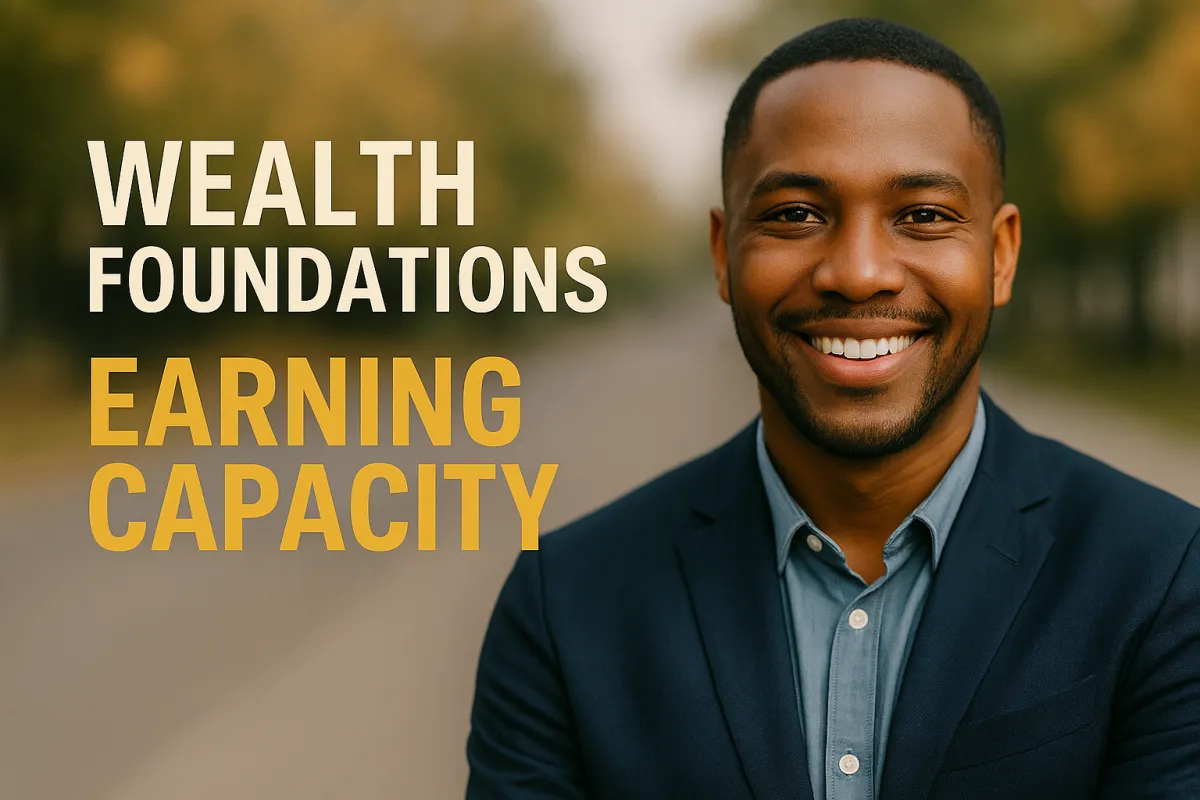
Wealth Foundations: Earning Capacity
When most people talk about wealth, they start with saving, investing, or cutting expenses. But none of those matter if you haven’t built the first and most essential foundation — your earning capacity.
You can’t save what you don’t earn.
You can’t invest what doesn’t exist.
And you can’t plan your way to freedom on a weak income base.
Earning capacity is the engine that drives every other financial decision. It’s the strength of that engine — not just the size of your paycheck — that determines how fast and far you can go.
1. Your Earning Capacity Is More Than Your Salary
Earning capacity isn’t simply how much you earn today. It’s what you could earn — if you fully leveraged your skills, time, experience, and opportunities.
Professionals often underestimate this. They get comfortable with a fixed income, assuming growth only happens through promotions or job changes. But true wealth builders view income differently.
They ask:
How can I increase my value in the marketplace?
How can I turn my expertise into new income streams?
How can I make money work even when I’m not working?
Earning capacity grows when you stop trading time for money and start trading value for reward. That’s when your career becomes an enterprise — and your expertise becomes capital.
2. The Three Levers of Earning Capacity
There are three main levers that determine how much you can earn — and how quickly that capacity grows.
a. Skills and Knowledge
Your skills are your income multipliers. The more specialized your knowledge, the greater your earning potential. Whether you’re a CPA, engineer, designer, or consultant, the question is: Are you deepening or diluting your value?
Continuous learning, certifications, and mentorship don’t just make you more employable — they make you more valuable.
b. Systems and Leverage
The difference between earning $80,000 and $800,000 often comes down to leverage. When you build systems — digital products, business processes, client funnels, or intellectual property — you free yourself from the limits of time.
Leverage turns skill into scale. It’s what separates professionals who hustle from professionals who grow.
c. Relationships and Reputation
Your earning capacity grows faster when people know, like, and trust you. Your network is a form of capital — one that often opens doors long before credentials do. Cultivate relationships with integrity, deliver value consistently, and let your work speak for itself.

3. Protecting and Expanding Your Earning Power
Once you start earning more, the next step isn’t spending more — it’s protecting and multiplying what you earn. That means being intentional about financial planning, tax strategy, and personal growth.
Ask yourself:
How much of my income is directed toward building assets?
How am I converting active income into passive wealth?
How can I ensure my income continues even if I step away temporarily?
True financial stability doesn’t come from how much you make — it comes from how resilient your income is.
4. Your Income Is a Seed, Not a Ceiling
Every dollar you earn has a job: to protect, to provide, and to produce. When you start viewing your income as a seed — something to be planted, cultivated, and multiplied — you step into the mindset of a wealth builder.
Earning capacity isn’t about chasing promotions or side hustles for the sake of it. It’s about designing your life so that your income reflects your value, your purpose, and your impact.
Final Thought
Before you can build financial systems, invest, or give generously, you need a solid income foundation. Strengthening your earning capacity is not greed — it’s stewardship. It’s how you create margin, freedom, and impact for yourself, your family, and your community.
Build your income like you’re building your legacy — because you are.